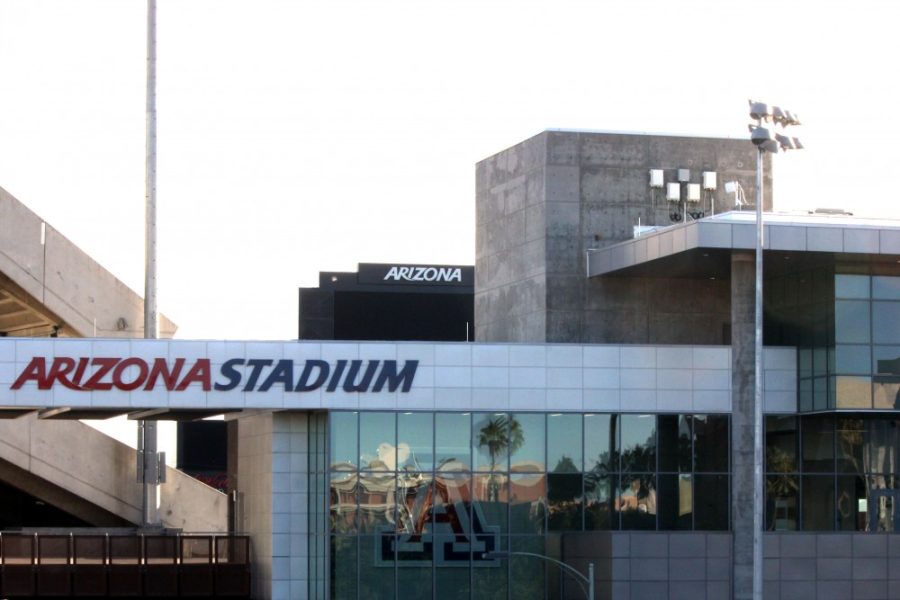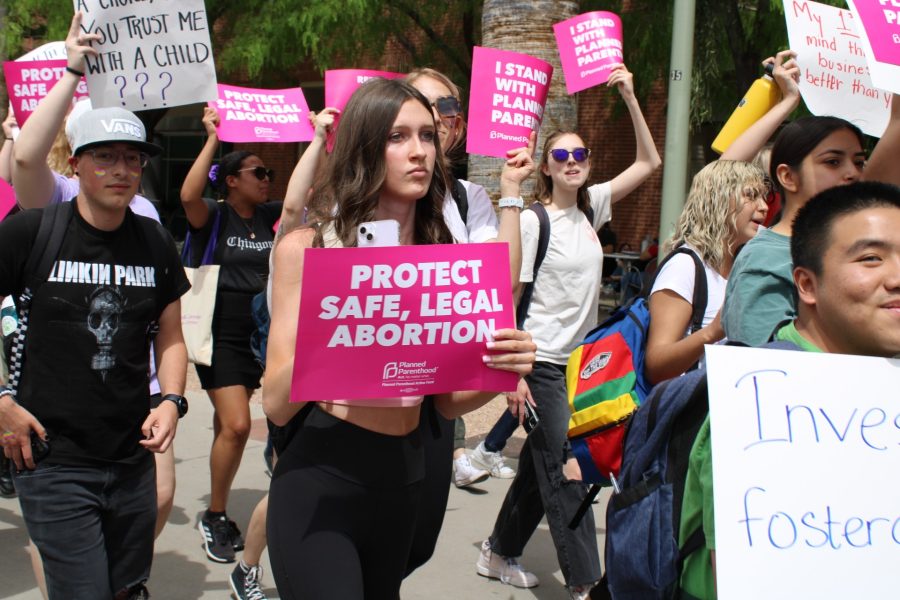Last week’s upset against Utah wasn’t just a big win, but also a big stepping stone for UA’s sustainability efforts. During the game, the UA participated in a zero-waste initiative against other PAC-12 universities.On Nov. 14, the UA Office of Sustainability, Students for Sustainability, Greening the Game, Compost Cats, the Zona Zoo and other organizations worked together to create a successful zero-waste game.
According to Ben Champion, director of the Office of Sustainability, the total diversion rate for the game was 69 percent, which is nearly double compared to other UA games. The cause also collected 10.6 tons in recycling and 1.25 tons in compost. The diversion rate refers to the waste recycled or composted, as opposed to waste sent to a landfill.
“We made a pretty huge step forward, and I think we all can be proud of that,” Champion said.
Between all of the students, volunteers, the tailgate, game and post-game sustainable efforts, the amount of hours of work exceeded 500, according to Champion.
Champion looks forward to future games with a higher diversion rate. He plans to incorporate more signs to notify students and fans, and have more announcements in the stadium.
With so many aspects of UA working together, like the swap of Styrofoam cups to compostable cups at the concession stands, Champion explains the importance of everyone working together.
“It’s a comprehensive approach, it involves everybody coming together and working together for each piece to work well,” Champion said. “Incorporating our sustainability efforts in a really public and prominent way, and having a big impact on these kinds of events is really key to shifting the needle as far as the overall [sustainable] campus culture goes.”
Cole Pihl, an environmental sciences junior and co-manager of Greening the Game, has been involved with the program for two years, and loves helping the environment.
“I like sports, I’ve always been pretty active in sports, and I’ve always been kind of an ‘eco-nut,’” Pihl said.
Pihl also mentioned simple things like hotdogs, that make it to the compost bin rather than a landfill, is an easy step to making a big difference.
Lily Engel, a biosystems engineering sophomore and co-manager for Greening the Game, was happy with the results from their first zero-waste football game, but looks forward to improving the diversion rate to 90 percentile range.
Engel said most people thank Greening the Game for the work their doing or recognize them at events.
“Because people know us and people are aware of us, it makes it evident that the UofA cares about sustainability; and eventually the student body will as well,” Engel said.
Engel hopes that those who attend sporting events will see the work they are doing, and will also bring those concepts home with them and start recycling and composting at home.
Pihl and Engel agree that educating fans is key to creating a more waste-conscious environment.
Champion, Engel and Pihl all look forward to more UA zero-waste sporting events in the future, with students and fans all working together to be more mindful of the waste they create, while still enjoying the game.
Follow Amanda Oien on Twitter.









